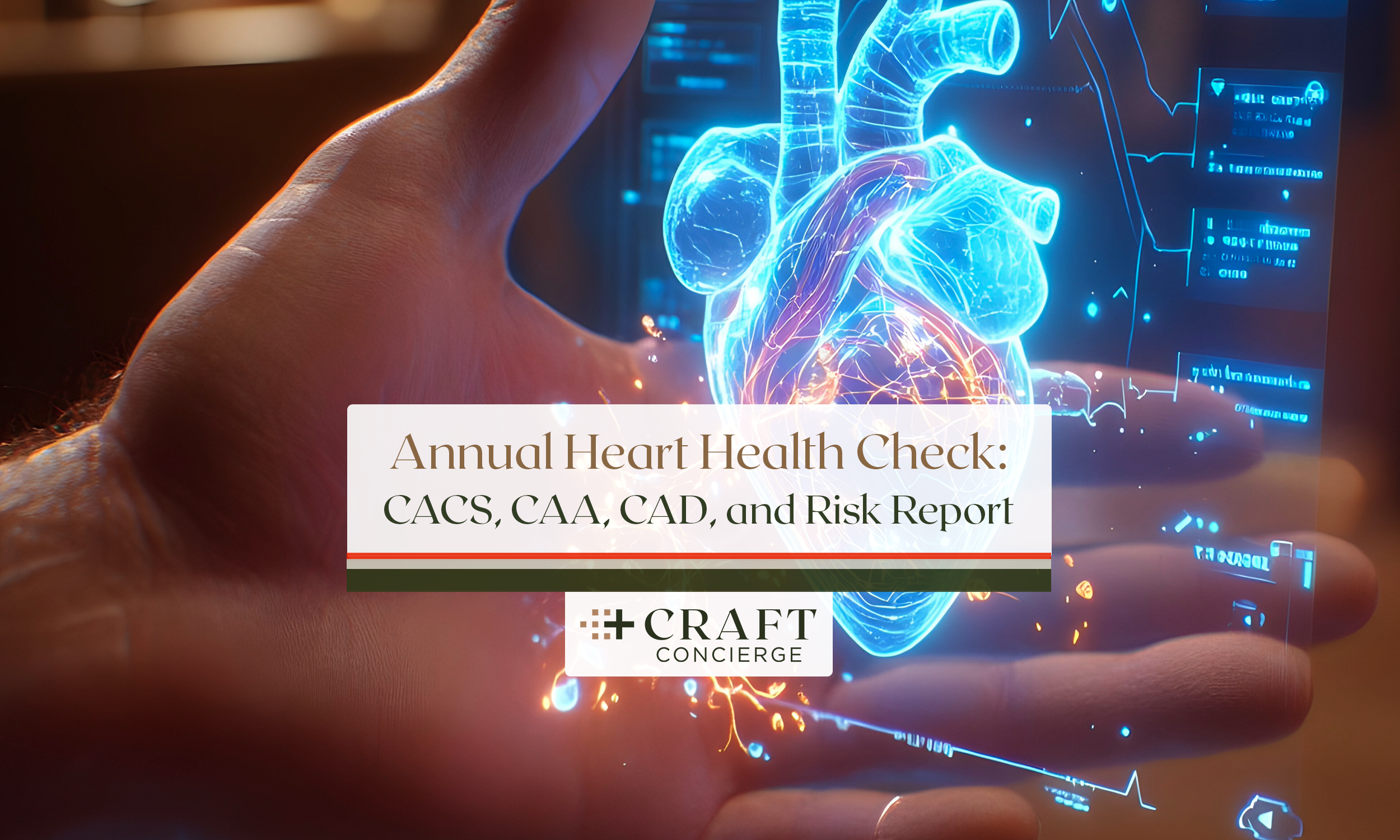Taking care of your heart isn’t just about staying active and eating well—it’s about being proactive. Your heart’s health is central to your overall well-being, and monitoring it regularly can make all the difference in preventing serious problems down the road. That’s where an Annual Full Heart Health Assessment comes in.
This isn’t just another test; it’s a comprehensive look under the hood of your cardiovascular system. Whether you’ve got a family history of heart issues or just want to stay ahead of potential risks, this assessment is like your heart’s annual report card, helping you understand exactly where you stand and what you can do to stay healthy.
What is an Annual Full Heart Health Assessment?
A full heart health assessment is all about taking a proactive approach to cardiovascular care. It goes beyond your typical cholesterol test, diving deep into the state of your heart and arteries.
Why is this important? Heart disease often develops silently, meaning you might not experience symptoms until it’s already serious. With annual testing, you can identify risks before they become full-blown problems, giving you the chance to take preventive measures. Think of it as catching a small leak in the roof before it turns into a flood—it saves you time, stress, and health in the long run.
Coronary Artery Calcium Scan (CACS)
The Coronary Artery Calcium Scan, or CACS, is one of the most powerful tools for assessing heart disease risk. It’s a simple, non-invasive test that detects calcified plaque in your coronary arteries.
Here’s why this matters: calcified plaque is a major warning sign of coronary artery disease (CAD). The test assigns you a “calcium score” that helps your doctor understand your risk of heart attack or other cardiac events.
If your score is higher, it’s like your heart is sending an early SOS. But don’t panic—knowing your score means you can work with your doctor to create a plan, whether it’s lifestyle changes, medication, or further testing.

Carotid Artery Assessment (CAA)
The Carotid Artery Assessment (CAA) focuses on the arteries in your neck, which play a key role in delivering blood to your brain. Using ultrasound, this test checks for plaque buildup or narrowing in these arteries—both of which are red flags for stroke risk.
Imagine having a pipeline delivering water to your house. If debris clogs the pipe, the flow slows or stops. The same concept applies to your carotid arteries. By detecting these blockages early, a CAA helps prevent strokes before they happen.
If you’re someone who’s always on the go, this test offers peace of mind, knowing that a critical area of your vascular system is being closely monitored.
Coronary Artery Disease (CAD) Analysis
While many tests focus on cholesterol levels, the Coronary Artery Disease (CAD) Analysis takes it a step further by analyzing plaque buildup and arterial narrowing. This test evaluates not just how much plaque is there, but also the type—calcified versus non-calcified.
Non-calcified plaque is especially dangerous because it’s softer and more likely to rupture, potentially causing a heart attack. By understanding what’s happening in your arteries, you and your doctor can create a targeted plan to lower your risk.
This kind of detail gives you a much clearer picture of your heart health, going beyond the basic numbers from a traditional lipid panel.

Precision Health Report
After the testing is complete, you’ll receive a Precision Health Report—a personalized, easy-to-understand summary of your cardiovascular risks. This report doesn’t just list numbers; it connects the dots between your test results and your overall health.
For example, it might highlight your risk for diabetes or stroke based on your glucose levels and arterial health. But it’s not just about pointing out risks—it’s about empowering you with a roadmap to improve. Whether that means adjusting your diet, adding exercise, or exploring medication options, the report helps you take control of your heart health with confidence.
Why is an Annual Heart Health Assessment Important?
So why bother with all this testing? The answer is simple: prevention. An Annual Heart Health Assessment gives you a chance to detect problems before they escalate.
Even if you feel fine, conditions like high blood pressure, plaque buildup, or arterial narrowing can quietly progress. By monitoring your heart health annually, you can:
- Spot risks early and address them proactively.
- Track changes in your heart health over time.
- Tailor a plan for preventing heart disease or managing existing conditions.
Think of it like maintaining a car. Regular check-ups ensure everything’s running smoothly and help you avoid costly repairs. Your heart deserves the same care and attention.
Who Should Consider an Annual Full Heart Health Assessment?
Not sure if this is for you? Here are some signs you might benefit from an annual heart health check:
- You’re over 40.
- There’s a history of heart disease in your family.
- You’ve got risk factors like high cholesterol, high blood pressure, or diabetes.
- Your lifestyle is more sedentary than you’d like, or stress is a big part of your daily routine.
Even if none of these apply, you might simply want the peace of mind that comes from knowing your heart is in good shape.

How to Get Started with Your Annual Heart Health Assessment
Your heart health is too important to leave to chance. That’s why Craft Concierge includes Annual Heart Health Checks as a core feature of both the Vitality and Longevity memberships. With comprehensive screenings like CACS, CAA, CAD Analysis, and a personalized Precision Health Report, you’ll have all the tools you need to monitor, protect, and optimize your cardiovascular health year after year.
When you choose Craft Concierge, you’re not just investing in cutting-edge diagnostics—you’re gaining peace of mind that your heart health is completely taken care of. From early detection to personalized care plans, our memberships are designed to keep you proactive, informed, and in control. Join today and take the first step toward a healthier heart and a healthier you.




